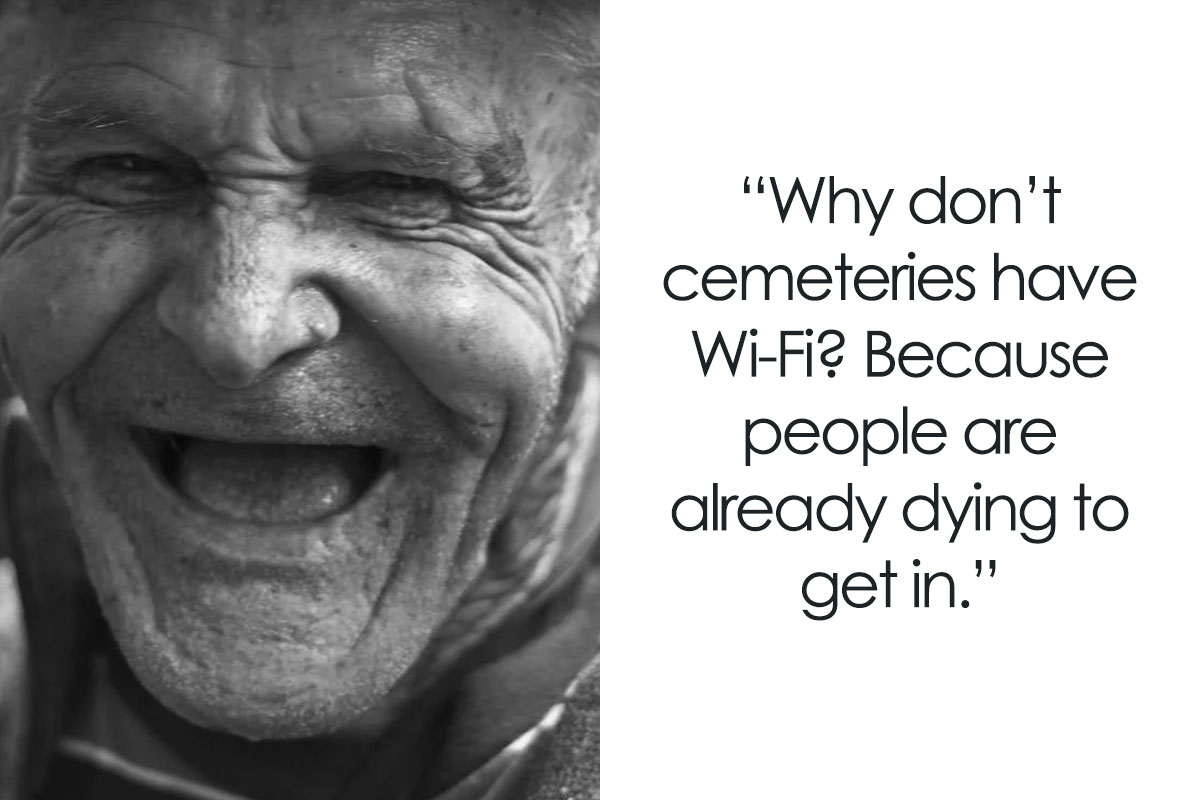Dark humor jokes have become increasingly popular in recent years, offering a unique way to process difficult emotions through laughter. These jokes often tackle serious topics like death, illness, and tragedy, but they do so with a twist of irony and wit. While some may find them offensive, others see dark humor as a coping mechanism and a way to embrace life's complexities. In this article, we'll explore the origins, psychology, and impact of dark humor jokes, providing examples and insights to help you understand their appeal.
Dark humor jokes challenge societal norms by addressing uncomfortable subjects in a comedic manner. This form of humor is not for everyone, but it plays an essential role in our cultural landscape. By examining the history and purpose of dark humor, we can better understand why it resonates with certain audiences and how it contributes to mental health and resilience.
Whether you're a fan of dark humor or simply curious about its role in modern society, this article will delve into the intricacies of this controversial form of comedy. From its psychological benefits to its ethical implications, we'll explore why dark humor jokes continue to captivate and challenge us.
Read also:Game Of Thrones Chaplin A Comprehensive Guide To The Iconic Series
What Are Dark Humor Jokes?
Dark humor jokes, also known as black comedy, involve making light of serious and often taboo subjects. These jokes typically revolve around themes such as death, disease, war, and other grim realities of life. While the concept may seem contradictory, dark humor serves as a powerful tool for processing difficult emotions and confronting the darker aspects of human existence.
Examples of dark humor jokes include:
- Why don’t graveyards ever get overcrowded? Because people are dying to get in.
- What’s the best way to communicate with a ghost? A spirit message.
- Why don’t scientists trust atoms? Because they make up everything.
These jokes often walk a fine line between humor and offense, making them both intriguing and controversial. However, their ability to provide relief through laughter is undeniable.
The History of Dark Humor
Origins of Black Comedy
The roots of dark humor can be traced back to ancient times, where comedians and storytellers used satire to address societal issues. In ancient Greece, playwrights like Aristophanes incorporated dark themes into their works, using humor to critique politics and morality. Similarly, Shakespeare's plays often blended tragedy and comedy, highlighting the complexities of human nature.
In the 20th century, dark humor gained prominence through the works of writers like Joseph Heller and Kurt Vonnegut, whose novels explored the absurdity of war and human suffering. Films such as "Dr. Strangelove" and "Monty Python's Flying Circus" further popularized black comedy, cementing its place in popular culture.
Psychological Benefits of Dark Humor
How Dark Humor Helps Us Cope
Research suggests that dark humor jokes can have significant psychological benefits. According to a study published in the journal Cognitive Processing, individuals who appreciate dark humor tend to have higher levels of intelligence and emotional stability. This form of humor allows people to confront their fears and anxieties in a safe and controlled environment, fostering resilience and adaptability.
Read also:Discover The Best Chantilly Va Hotels With A Fitness Center
Additionally, dark humor can serve as a social bonding mechanism. Sharing these jokes with others who understand and appreciate them creates a sense of camaraderie and shared experience. This connection can be particularly valuable in challenging times, offering a sense of solidarity and support.
Examples of Dark Humor Jokes
Death and Mortality
Death is one of the most common themes in dark humor jokes. These jokes often use irony and wordplay to lighten the heaviness of mortality. Here are a few examples:
- Why don’t scientists trust atoms? Because they make up everything.
- What’s the difference between a coffin and a fridge? You don’t need food to survive in a coffin.
- Why don’t graveyards ever get overcrowded? Because people are dying to get in.
Illness and Disability
Illness and disability are also frequent subjects of dark humor. While these jokes may seem insensitive, they often stem from a place of understanding and empathy. Examples include:
- What’s the best way to cure a toothache? Lie to your dentist about brushing your teeth.
- Why don’t doctors ever get divorced? Because they can’t agree on the diagnosis.
- Why did the cancer patient bring a ladder to the doctor’s office? To reach new heights in treatment.
The Ethics of Dark Humor
When Does Dark Humor Cross the Line?
While dark humor jokes can be therapeutic, they also carry ethical implications. The line between humor and offense is subjective, and what may seem funny to one person could deeply upset another. It's essential to consider the context and audience when sharing these jokes, ensuring that they don't harm or alienate others.
For example, jokes about recent tragedies or personal losses may be inappropriate, as they can trigger painful memories and emotions. However, when used thoughtfully and respectfully, dark humor can foster understanding and connection, helping people navigate difficult situations together.
Dark Humor in Popular Culture
Dark Humor in Movies and TV Shows
Popular media frequently incorporates dark humor to explore complex themes and engage audiences. Shows like "BoJack Horseman," "Rick and Morty," and "Black Mirror" use black comedy to address issues such as mental health, existential dread, and technological advancements. These programs push the boundaries of traditional storytelling, offering viewers a unique perspective on life's challenges.
Similarly, films like "The Grand Budapest Hotel," "Birdman," and "The Big Short" employ dark humor to critique societal norms and economic systems. By blending comedy with tragedy, these works create a powerful emotional impact that resonates with audiences worldwide.
Dark Humor and Mental Health
Therapeutic Uses of Dark Humor
Dark humor jokes can play a crucial role in mental health therapy. Therapists often encourage clients to explore their feelings through humor, helping them process trauma and grief in a constructive manner. This approach allows individuals to confront their fears and anxieties in a non-threatening way, promoting healing and growth.
Moreover, dark humor can serve as a form of self-expression, enabling people to communicate their inner struggles and experiences. By sharing these jokes with trusted friends or family members, individuals can build stronger relationships and develop a deeper sense of empathy and understanding.
Controversies Surrounding Dark Humor
Why Some People Oppose Dark Humor
Despite its benefits, dark humor remains a controversial topic. Critics argue that these jokes perpetuate harmful stereotypes and trivialize serious issues. They believe that humor should never come at the expense of others' pain and suffering. While this perspective is valid, it's important to recognize the nuanced nature of dark humor and its potential for positive impact.
Ultimately, the effectiveness of dark humor depends on the context and delivery. When used appropriately, these jokes can foster connection and resilience, but they must be approached with sensitivity and respect for others' feelings.
Conclusion
Dark humor jokes offer a unique and powerful way to process life's challenges through laughter. From their historical origins to their psychological benefits, these jokes have played an essential role in shaping our understanding of humor and its place in society. By exploring the intricacies of dark humor, we can better appreciate its potential to foster resilience, empathy, and connection.
We invite you to share your thoughts on dark humor in the comments below. Do you find these jokes funny, or do you think they cross the line? Let us know, and don't forget to explore our other articles on humor and mental health. Together, we can continue the conversation and deepen our understanding of this fascinating form of comedy.
Table of Contents


